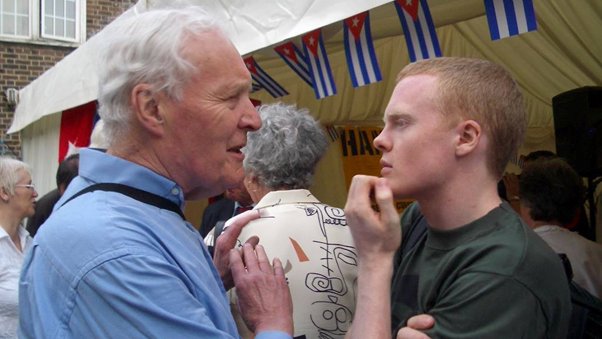#OnThisDay in Labour history 6 years ago ...
The 2017 manifesto was launched at Bradford University
"Our manifesto offers hope … Our manifesto is for the many, not the few", said Jeremy Corbyn
🧵
The 2017 manifesto was launched at Bradford University
"Our manifesto offers hope … Our manifesto is for the many, not the few", said Jeremy Corbyn
🧵

It was described as "Corbyn's sharp left turn" by @theipaper
The front page emphasised tax rises on the rich, scrapping tuition fees, public ownership of water, energy and rail
And the pledge to build "at least 100,000 council and housing association homes a year" ...
The front page emphasised tax rises on the rich, scrapping tuition fees, public ownership of water, energy and rail
And the pledge to build "at least 100,000 council and housing association homes a year" ...

That "sharp left turn" helped Labour narrow a 24 point polling gap at the start of the campaign to a 2.4 point gap on polling day.
Labour gained seats in an election for the 1st time since 1997, and increased the Labour share of the vote by more than at any election since 1945
Labour gained seats in an election for the 1st time since 1997, and increased the Labour share of the vote by more than at any election since 1945
When @YouGov asked why 12.8 million people voted Labour in 2017, the No.1 reason was "Manifesto / policies": 

The current Leader Keir Starmer said in 2020:
"We should treat the 2017 manifesto as our foundational document. The radicalism and the hope that inspired across the country was real"
Indeed, the first 9 of his 10 pledges were broadly lifted from the 2017 manifesto:
"We should treat the 2017 manifesto as our foundational document. The radicalism and the hope that inspired across the country was real"
Indeed, the first 9 of his 10 pledges were broadly lifted from the 2017 manifesto:
The pledges were "based on the moral case for socialism" with "no stepping back from our core principles": 

Even the Tories have taken on some of the agenda:
Labour, 2017: Raise corporation tax from 19% to 26%
🔵The Tories have raised it to 25%
Labour 2017: Public ownership of the railways
🔵The Tories have brought four franchises into public control
Labour, 2017: Raise corporation tax from 19% to 26%
🔵The Tories have raised it to 25%
Labour 2017: Public ownership of the railways
🔵The Tories have brought four franchises into public control
And the core policies 'For the Many, Not the Few' remain necessary and popular:
🌹Tax the wealthy
🌹Public ownership of core utilities
🌹End austerity and properly fund public services
🌹Strengthen workers' rights
🌹Build council housing.
There is still a world to win ✊
🧵ends
🌹Tax the wealthy
🌹Public ownership of core utilities
🌹End austerity and properly fund public services
🌹Strengthen workers' rights
🌹Build council housing.
There is still a world to win ✊
🧵ends

• • •
Missing some Tweet in this thread? You can try to
force a refresh















